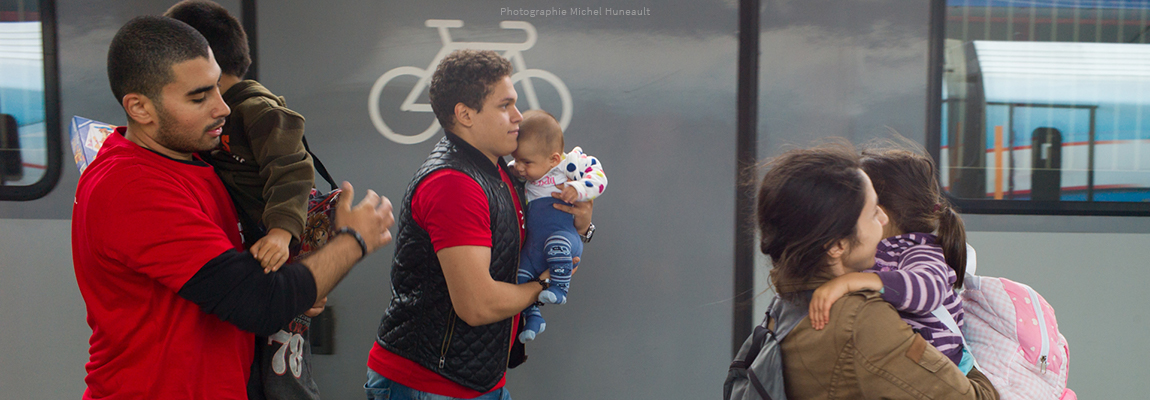Temporary foreign workers in Canada: analysis of a federal vulnerability mitigation program
This project analyzes the effects of the federal program called Open Work Permit for vulnerable foreign workers who are victims of abuse. Established in 2019, this program is intended to protect temporary foreign workers with a closed work permit (binding them to an employer) who are victims of abuse by their employer. With this program, temporary workers who report abuse and whose application is accepted obtain an open work permit valid for one year which allows them to leave their initial employer and look for another job.
While many community organizations in different provinces have used this federal program, its medium-term impact on workers who are victims of abuse is unknown. By conducting interviews with migrant workers who were part of this program or whose application was refused, this research project aims to show the effects on temporary migrant workers and their journeys after they have obtained their open work permit for one year or after their application has been refused.
This project is being carried out in three Canadian provinces and in collaboration with community organizations: Quebec (RATTMAQ), Ontario (Legal Assistance of Windsor) and British Columbia (Migrant Workers Center).
It will be the subject of conferences, a report and recommendations to IRCC on the content of the federal program and its consequences on the lives of temporary migrant workers.
This project was awarded a Partnership Engage Grant of the Canada Social Sciences and Humanities Research Council
Guiding through the Maze : the rôle of the local constituency office in the Canadian immigration services landscape
This project examines the role of federal MPs and constituency offices in immigration services. Particular attention is paid to the immigration constituency assistants who handle the day-to-day files. In the bureaucratic maze of immigration, they are often the only face-to-face intermediaries between migrants and the Department of Refugees and Citizenship, a role that is overlooked and yet often crucial to migrants.
Les soins de santé pour les demandeurs d’asile au Québec : pourquoi l’accès aux soins est difficile?
Asylum seekers who arrive in Quebec are not covered by the Régie de l’assurance maladie du Québec (RAMQ). Instead, they are eligible for the Interim Federal Health Program (IFH), which covers certain care. However, this program is not well known by health care institutions and professionals, which limits its accessibility. In order to demystify the nature and functioning of this program and to increase its accessibility, the Canada Research Chair on Global Migration Dynamics and the Équipe de recherche en partenariat sur la diversité culturelle et l’immigration dans la région de Québec (ÉDIQ) have produced a series of short videos on the subject.
Les migrations de réfugiés syriens en Turquie
Turkey, the country at the heart of the current migration crisis, opened its borders to refugees from Syria in October 2011, offering them temporary legal protection. Then, as the conflict intensified and grew more complex, Turkey became a waiting territory: by 2021, a total of 3.7 million Syrian refugees were living in Turkey. Danièle Bélanger was awarded an initial research grant to study these issues (Surviving Immobility), and in June 2017, an Insight Development Grant was obtained for a project in partnership with Cenk Saraçoğlu of Ankara University. This collaboration is currently continuing through an analysis of the impact of the 2020-21 pandemic on Syrian refugees in Turkey. Myriam Ouellet (PhD student in geography) is investigating the gendered dimension of refugee migration through the study of the exile of young Syrian male deserters seeking asylum in neighboring countries (Lebanon, Turkey, Jordan).
Project “Planche la recherche: Quand BD et sciences sociales s’emmêlent”
The project aims to increase collaboration between comics and social sciences.
It has 2 components:
the training of eight pairs of comic artists and students/researchers in comics as a medium for knowledge transfer and the co-creation of four drawn boards per pair, resulting from research findings on the effect of public policies on society and individuals during practical workshops bringing together the eight pairs during the conference.
the construction of a reflection on the uses of comics in the social sciences during an international and multidisciplinary colloquium on May 18 and 19, 2023 in Montreal with conferences and round tables.
This interdisciplinary colloquium will bring together researchers and cartoonists in order to build bridges and reflections on the relationship between comics and social sciences.
Documentary Movie «Solidarity Beyond the longest border»
This film tells the compelling story of how local communities deal with the arrival of nearly four million Syrians at their door. Shot in the City of Izmir, the film features the perspectives and experiences of Turkish citizens who work alongside Syrians, who have become volunteers in migrant help associations or who have stepped in to protect the lives of Syrian children. These vibrant testimonies of solidarity and hope reveal grass-root social and political processes at work in Turkish society.
Director : Eylem Sen
Script: Danièle Bélanger and Eylem Sen
Assistance to the director: Erbil Sen
Editors: Eylem Sen, Sercan Bozdogan, Kubilay Aksun
Sound editor: Mural Elgun
2019, 33 min.
A production of the Canada Research Chair in Global Migration Processes, with funding from the Social Science Research Council of Canada
Currently available in Turkish with English subtitle.
Documentary Movie «Witnessing Exile»
In 2015-16, Europe was the destination of nearly one million refugees, the majority of whom traveled the historic route of the Balkans in order to reach Germany. Witnessing Exile captures with simplicity and authenticity the trace left by this exodus among those who have witnessed it along the way. Danièle Bélanger went to meet them on one of these roads. The film presents intimate testimonies and powerful analyses of people whose lives were transformed by this major event in the world’s migratory history.

